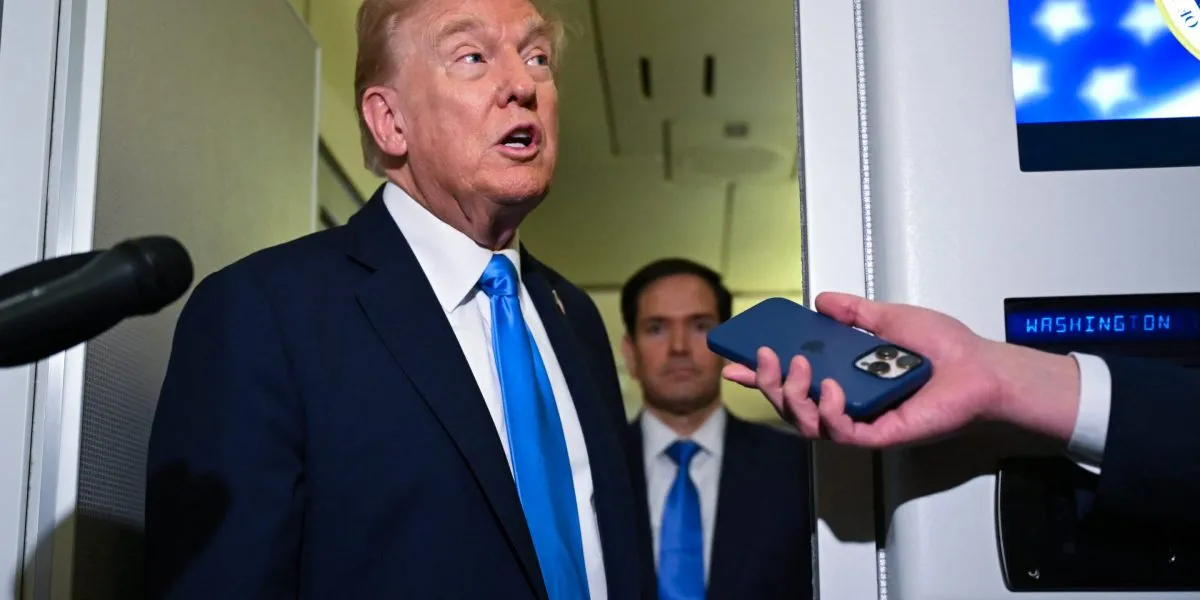
During a recent flight on Air Force One, former President Donald Trump expressed his excitement about the significant electoral success of Javier Milei's party in Argentina. The election results are viewed as a crucial evaluation of Milei's aggressive strategies aimed at revitalizing Argentina's struggling economy. “That was a big win,” Trump stated, emphasizing not only the victory but the substantial margin by which it was achieved. This endorsement aligns with Trump’s broader strategy to influence a political shift throughout Latin America, where multiple elections are approaching.
In the wake of Milei's success, Treasury Secretary Scott Bessent undertook a series of unconventional measures designed to stabilize Argentine assets. These actions were essential after the Argentine peso experienced a significant drop, particularly following Milei's party's defeat in a crucial provincial election the previous month. According to market estimates, Bessent's strategy involved over $1 billion in peso purchases, which has seemingly yielded impressive returns. If the Argentine currency continues to rise in the trading session similar to trends observed in cryptocurrency markets, the United States stands to gain hundreds of millions of dollars.
Trump remarked on the financial implications of the election, stating, “That election made a lot of money for the United States.” He noted that the value of bonds and the country’s debt rating have both improved following Milei's electoral success. This situation highlights the complexities of investing in a nation that has a history of financial defaults and currently owes $55 billion to the IMF.
Bessent, who has extensive experience in foreign exchange, orchestrated a $20 billion foreign-exchange swap with Argentina’s central bank, a rare strategy that bypassed the usual involvement of the US Federal Reserve. Additionally, he has been working on a complementary financing deal involving private-sector banks, totaling another $20 billion. Just days before the election, Argentina’s peso had reached a record low, and its bonds were declining as traders braced for the election outcome.
Despite the current optimism, challenges remain. As Milei's party holds a minority in Argentina’s national legislature, and the nation continues to grapple with substantial debt, questions linger about the sustainability of these gains. Bessent believes that the US may reduce its interventions, stating, “Now I think the market is going to take care of itself and it’s going to have a lot of confidence in his policies,” referring to Milei's economic plans. He acknowledged the impending significant refinancing needs for the country but emphasized that the Argentine populace has made its voice heard.
Trump’s administration’s support for Argentina may mitigate some of the recent criticisms faced in Congress, particularly from Democrats and some Republicans concerned about Argentina’s competition with the US in soybean exports to China. With Beijing halting purchases during the current American harvest as part of its broader trade strategy against Trump, Bessent defended the US financial assistance, stating, “Those soybeans were always going to get purchased. It’s a global market.”
The electoral victory of Javier Milei marks a pivotal moment for Argentina, with potential implications for both the country's economy and US-Latin America relations. As the situation unfolds, the focus will remain on whether Argentina can maintain its managed-peg exchange rate and navigate its financial obligations without US backing. The developments in Argentina serve as a critical case study for understanding the interplay between domestic politics and international economic strategies.